Tag Archive for: Semrush site audit tips

How to fix: Issues with unminified JavaScript and CSS files
BlogIssue: Unminified JavaScript and CSS files are larger than necessary, slowing down page load times, which can negatively impact user experience and SEO.
Fix: Minify your JavaScript and CSS files by removing extra spaces, comments, and lines.…
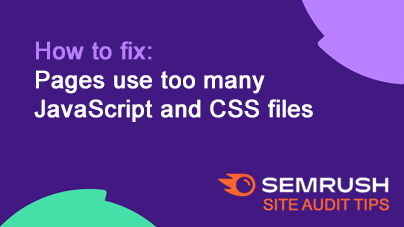
How to fix: Pages use too many JavaScript and CSS files
BlogIssue: Using more than 100 JavaScript and CSS files on a page slows it down because each file requires a separate HTTP request, leading to longer load times, poor user experience, and lower search rankings.
Fix: Remove unnecessary JavaScript…

How to fix: Pages have a JavaScript and CSS total size that is too large
BlogIssue: If your JavaScript and CSS files are too large (over 2 MB total), it can slow down page load times, hurting user experience and potentially lowering search engine rankings.
Fix: Remove any unnecessary JavaScript and CSS files. For…

How to fix: Issues with uncached JavaScript and CSS files
BlogIssue: Uncached JavaScript and CSS files force browsers to download these resources every time a user visits your page, slowing down page load times and frustrating visitors.
Fix: Enable browser caching for JavaScript and CSS files to allow…

How to fix: Issues with uncompressed JavaScript and CSS files
BlogIssue: Uncompressed JavaScript and CSS files increase your page’s size and slow down load time, negatively affecting user experience and potentially lowering SEO rankings.
Fix: Enable compression on your server for JavaScript and CSS files.…
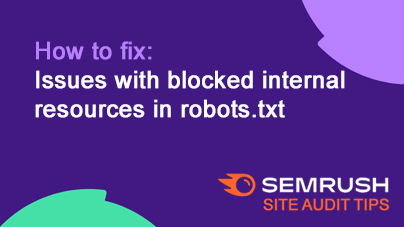
How to fix: Issues with blocked internal resources in robots.txt
BlogIssue: Blocking internal resources like CSS, JavaScript, or images in your robots.txt file prevents search engines from fully rendering your webpages. This can negatively affect indexing and rankings.
Fix: Update your robots.txt file to allow…
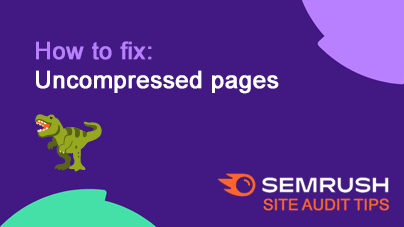
How to fix: Uncompressed pages
BlogIssue: Uncompressed pages don’t use compression like Gzip or Brotli, making them larger and slower to load. This leads to poor user experience and can hurt search engine rankings.
Fix: Enable compression on your web server to reduce page…
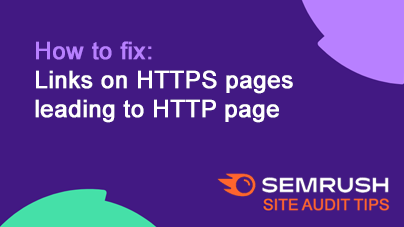
How to fix: Links on HTTPS pages leading to HTTP page
BlogIssue: Links on HTTPS pages that point to HTTP pages can confuse search engines about which version to prioritize and may lead to mixed content issues, affecting SEO and security.
Fix: Replace all HTTP links with their HTTPS versions.
How…

How to fix: HTTP URLs in sitemap.xml for HTTPS site
BlogIssue: If your sitemap.xml contains HTTP URLs for a website that uses HTTPS, it can confuse search engines, leading to incomplete or inefficient crawling of your site.
Fix: Update your sitemap.xml to ensure all URLs use HTTPS.
How to Fix…
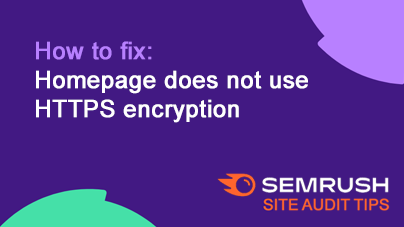
How to fix: Homepage does not use HTTPS encryption
BlogIssue: If your homepage doesn’t use HTTPS, it’s less secure and may rank lower in search results because Google prioritizes secure websites.
Fix: Switch your homepage (and entire website) to HTTPS by installing an SSL certificate.
How…